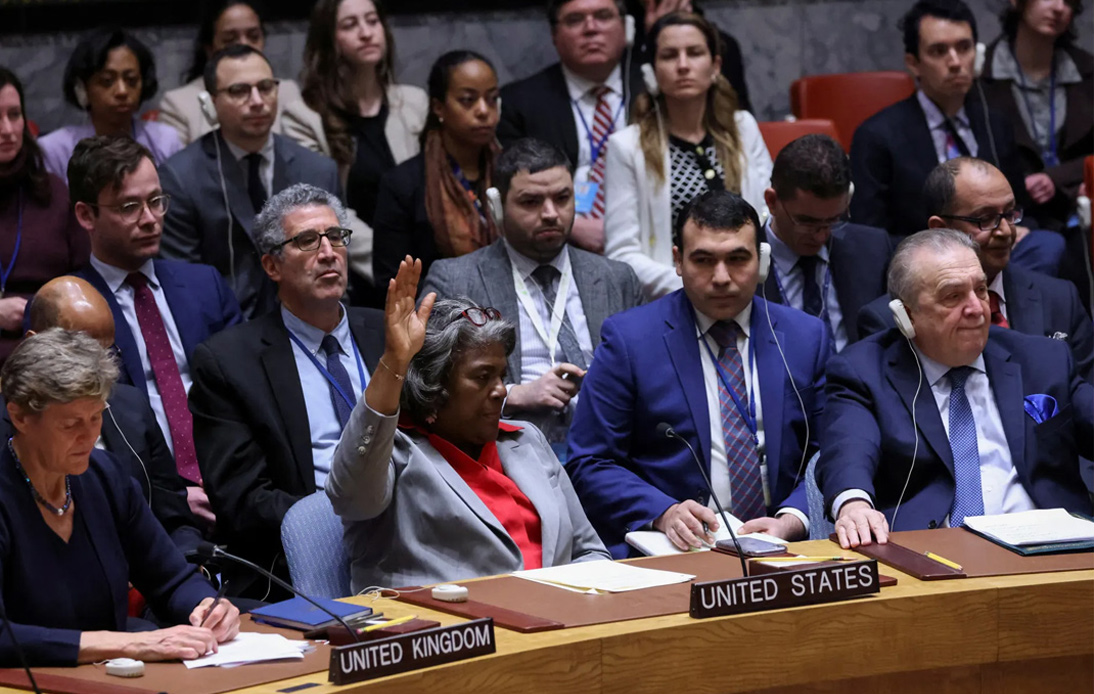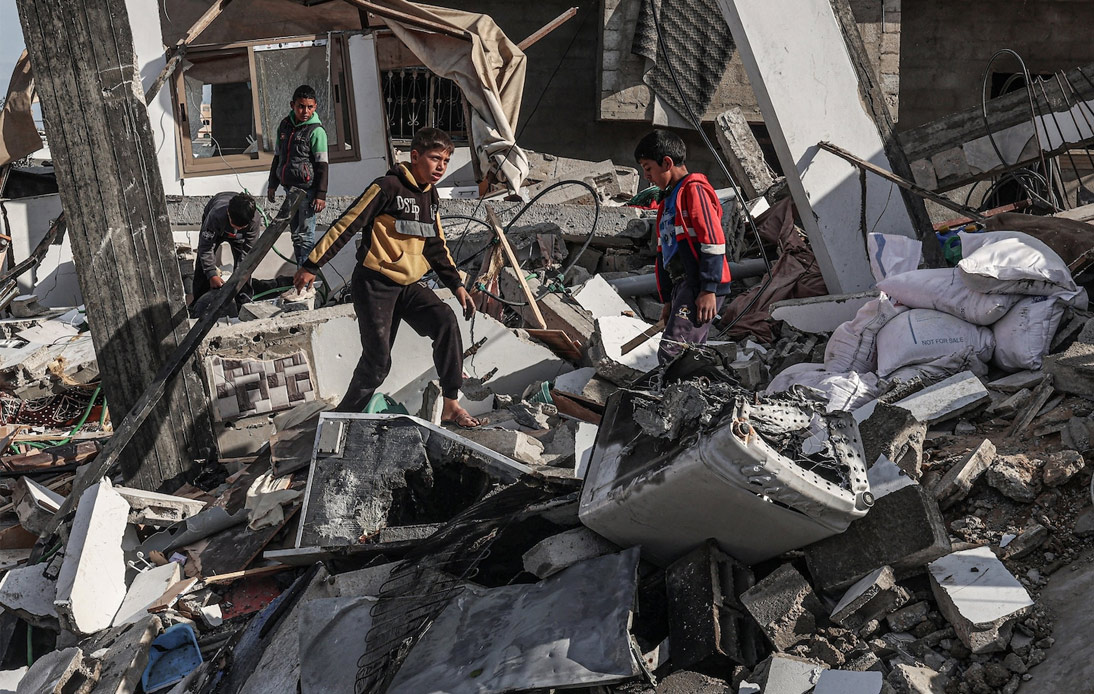
The UN Security Council has issued a call for an immediate ceasefire in Gaza, marking a significant shift in stance by the US, which opted not to veto the resolution.
Additionally, the council has demanded the immediate and unconditional release of all hostages.
This represents the council’s first request for a cessation of hostilities since the conflict began in October, despite numerous unsuccessful attempts.
The decision by the United States signals a growing estrangement with its ally, Israel, over its military actions in Gaza.
A strong statement from the office of Israeli Prime Minister Benjamin Netanyahu criticized the United States for abandoning its previous position, which directly linked the ceasefire to the release of hostages.
“Regrettably, the United States did not veto the new resolution,” the statement said.
The statement argued that this decision undermines efforts to free hostages by suggesting to Hamas that it could use international pressure on Israel to secure a ceasefire without releasing the hostages.
Furthermore, it was announced that Mr. Netanyahu has cancelled the scheduled meetings in Washington this week with an Israeli delegation and US officials.
Israel’s defense minister has stated that military operations in Gaza will continue as long as hostages remain captive there.
The Palestinian delegate to the UN, Riyad Mansour, welcomed the resolution but criticized its delay.
“It has taken six months, over 100,000 Palestinians being killed or injured, two million displaced, and famine, for this council to finally demand an immediate ceasefire,” Mr. Mansour stated.
Hamas, the Palestinian Islamist group governing Gaza that initiated the conflict with a significant attack on Israel on October 7, also welcomed the resolution. It expressed readiness to begin an immediate process for prisoner exchange to facilitate the release of captives from both sides.
Hamas has made it clear that any exchange of hostages must include the release of Palestinians detained in Israeli prisons.
In the Security Council vote on Monday, the US abstained, while the other 14 members voted in favor.
Previously, the US had obstructed resolutions calling for a ceasefire, arguing that it would be inappropriate amid ongoing delicate negotiations between Israel and Hamas over a truce and the release of hostages.
However, on Thursday, the US presented its own proposal, which for the first time called for a ceasefire, indicating a hardening of its stance towards Israel.
Mark Lyall-Grant, the former UK ambassador to the UN, noted that the resolution now obligates Israel to cease its military campaign for the next 15 days, aligning with the remainder of the Muslim holy month of Ramadan, as the resolution specifies.
He emphasized that the resolution imposes a legal obligation on Israel but not on Hamas, as the latter is not recognized as a state entity.
The US has been criticized for previously using its veto power to protect Israel at the UN.
Its increasing criticism of Israel stems from the escalating death toll in Gaza, where over 32,000 people, mainly women and children, have been killed by Israeli bombardments, according to reports from the territory’s Hamas-run health ministry.
The US has pressed Israel to improve the delivery of aid to Gaza, highlighting severe acute food insecurity affecting the entire population.
The UN has accused Israel of obstructing aid delivery, whereas Israel accuses the UN of failing to efficiently execute distributions.
The current conflict erupted after Hamas gunmen crossed into Israeli territory, killing approximately 1,200 people, according to Israeli reports, and taking 253 individuals into Gaza as hostages.
Of those taken, 130 remain unaccounted for, following various releases, rescues, and the recovery of bodies.





















